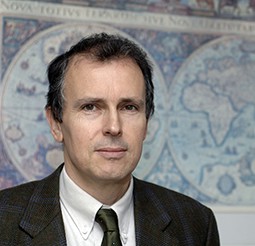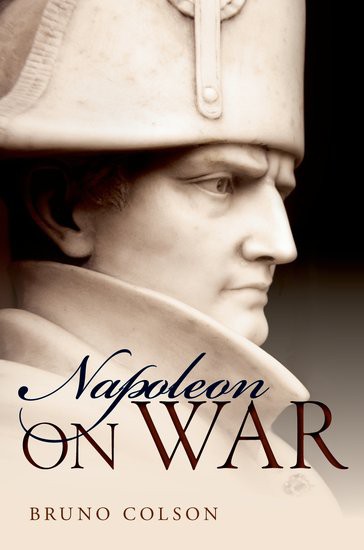Peter Hicks: Napoleon never wrote a treatise on war, not even on St Helena. You have recreated Napoleon’s theory of war using the writings of Clausewitz, who was largely inspired by Napoleon on the battlefield. Do you recognize a sort of circularity in this procedure, a sort of Napoleon on Napoleon?
 Bruno Colson: I used Clausewitz’s contents in On War [original German title: Vom Kriege] to give an intellectual structure to Napoleon’s widespread reflections on war. Actually you may find a sort of circularity at a very high level: I mean both men were reluctant to see war through the eyes of most of the theoreticians of the 18th Century, namely, as a matter of rationalist planning subjected to rules, the famous “principles of war”, and with a kind of mechanistic development. Of course Clausewitz’s way of thinking about war came from his own experience on the battlefield and from his study of the new French way of war since 1792, epitomised by Napoleon. Thanks to his deep understanding, his intellectual curiosity and the maturation of his ideas, Clausewitz was able to grasp some basic truths about war which had also struck Napoleon. This book’s originality is to have found ideas common to both men. In the beginning I just wanted to use On War as a framework and I was aware that I could be criticized for that. But the results exceeded my expectations.
Bruno Colson: I used Clausewitz’s contents in On War [original German title: Vom Kriege] to give an intellectual structure to Napoleon’s widespread reflections on war. Actually you may find a sort of circularity at a very high level: I mean both men were reluctant to see war through the eyes of most of the theoreticians of the 18th Century, namely, as a matter of rationalist planning subjected to rules, the famous “principles of war”, and with a kind of mechanistic development. Of course Clausewitz’s way of thinking about war came from his own experience on the battlefield and from his study of the new French way of war since 1792, epitomised by Napoleon. Thanks to his deep understanding, his intellectual curiosity and the maturation of his ideas, Clausewitz was able to grasp some basic truths about war which had also struck Napoleon. This book’s originality is to have found ideas common to both men. In the beginning I just wanted to use On War as a framework and I was aware that I could be criticized for that. But the results exceeded my expectations.
Peter Hicks: Napoleon’s maxims on war were selected and published shortly after his death. They are often generalities revealing a strong component of good sense. Where do you think Napoleon was more inspired than his contemporaries in matters of war?
Bruno Colson: No man in his time – and one may even say in the whole of History – was more involved in the commanding of armies over so many years and in such a variety of countries. If we put aside the propaganda dimension and if we don’t even consider the question of winning or losing, such an experience is unique and gives Napoleon’s voice a particular weight. Of course we must begin not only with a detailed look into his writings, most of them dictated, but a selection must be made. One must always remain careful not to swallow everything he said as if it were the Gospel truth! One way of avoiding this trap is to concentrate on general considerations and to look at his reflections on his own campaigns in the light of recent academic works.
Peter Hicks: Jean Tulard summed up Napoleon the military man as a poker player who obeyed the simple maxim of concentrating more men than the enemy into one single point. Do you think this is accurate or indeed fair?
Bruno Colson: Yes, this was basically his way. But to do that he had to galvanise his men, to calculate everything that could be subjected to measurement, such as distances, resting areas, road capacities, provisions, ammunitions, and so on. As you know, he was very fond of mathematics and he had a perfect knowledge of the units of his army, of his officers, of the state of his artillery guns. He was particularly able to draw a limit between the “material” and the “spiritual” components of war. This is an approach which is still valid today. And I would add, in this time of “techno-centric warfare”, it is something one must always bear in mind.
June 2016


